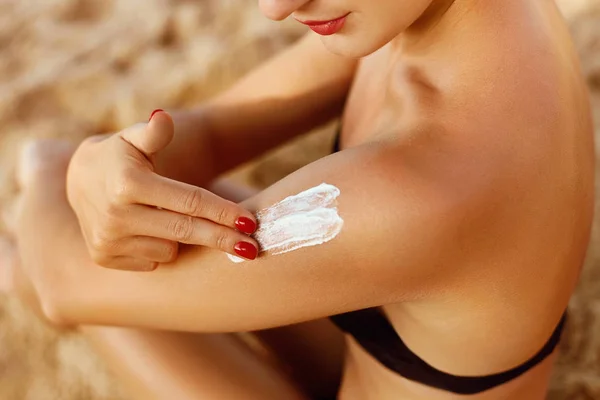Discover the underlying Causes of Dry Skin All Over Body and learn effective solutions to nourish and hydrate your skin. Explore essential insights to combat dryness, from lifestyle changes to skincare routines, ensuring a smoother and healthier complexion. Uncover the reasons behind widespread dry skin and take proactive steps for optimal skin hydration.
From the subtle tightness that whispers its arrival to the flaky aftermath that paints a map of discomfort, the causes behind this condition are as varied as they are intriguing. It’s a tale woven between external elements like harsh climates and relentless soaps, and internal whispers from your own body’s chemistry.
Join me on a journey through the labyrinth of reasons that render skin parched and yearning for reliefa mosaic of triggers that transforms this tale from an inconvenience to a quest for comfort and hydration.

Causes Of Dry Skin All Over Body
Dry skin all over the body can be caused by various factors, including environmental conditions, harsh soaps, hot showers, dehydration, certain medical conditions, and aging. Understanding these causes is crucial to effectively managing and preventing widespread dryness.
Environmental Conditions
Dry air, particularly during winter months or in arid climates, can strip the skin of its natural moisture, leading to overall dryness. People often experience exacerbated dryness when exposed to central heating or air conditioning for prolonged periods.
Harsh Soaps and Cleansers
The use of strong soaps and harsh cleansers can disrupt the skin’s natural oils, causing it to become dry and irritated. Common culprits include products with high alcohol content or strong fragrances.
Hot Showers or Baths
While soothing, frequent hot showers or baths can strip the skin of its natural oils, leaving it dry and tight. Prolonged exposure to hot water can exacerbate the issue, especially without proper moisturization afterward.
Dehydration
Insufficient intake of water can lead to dehydration, affecting skin health. When the body lacks proper hydration, the skin can become dry and lose its elasticity, contributing to widespread dryness.
Medical Conditions
Certain medical conditions, such as eczema, psoriasis, hypothyroidism, and diabetes, can contribute to dry skin all over the body. These conditions disrupt the skin’s ability to retain moisture, leading to persistent dryness. Understanding these causes is crucial for anyone experiencing widespread dry skin.
Environmental factors like dry air and harsh cleansers can strip the skin of its natural oils, while hot showers and dehydration can exacerbate the issue. Additionally, underlying medical conditions may contribute to persistent dryness, requiring specific attention and treatment.

Factors Contributing to Dry Skin
Factors Contributing to Dry Skin stem from various influences, including environmental causes like low humidity levels, extreme temperatures, and harsh weather conditions such as wind or sun exposure. Lifestyle choices like excessive bathing with hot water, use of harsh soaps, and a lack of moisturizing routine also play a pivotal role.
Additionally, medical conditions like atopic dermatitis, psoriasis, and hypothyroidism, along with aging, hormonal changes, and genetic predispositions, can significantly impact skin moisture levels.
Effects of Dry Skin
Dry skin can trigger various physical effects such as itching, flaking, cracks, and redness, causing discomfort and pain. These manifestations often lead to psychological distress, impacting self-esteem and mental well being. Managing dry skin becomes pivotal to alleviate irritation and maintain a positive body image and overall confidence.
Diagnosis of Dry Skin
Diagnosis of dry skin involves a comprehensive approach, including a thorough physical examination, an indepth review of medical history and family background, and potential diagnostic tests if necessary. The assessment typically begins with a visual inspection of the skin’s appearance and texture, coupled with questions regarding personal health and familial predispositions to skin conditions.
Diagnostic tests, such as skin hydration measurements or patch tests, may be employed to ascertain specific causes or contributing factors. Understanding the signs, symptoms, and individual history is crucial for an accurate diagnosis and tailored treatment plan for dry skin.
Treatment and Prevention
Lifestyle changes play a pivotal role in managing skin conditions, focusing on hydration, a balanced diet, gentle cleansing, and a regular moisturizing routine. Avoiding irritants is crucial, while medical interventions like prescription moisturizers, corticosteroids, antihistamines for allergies, and therapies such as phototherapy or hormonal treatments aid in control.
Home remedies like natural oils, humidifiers, oatmeal baths, and protective clothing during harsh weather offer self-care solutions. Embrace these strategies to effectively manage and prevent skin issues.
When to Seek Medical Advice
Knowing when to seek medical advice for dryness-related concerns is crucial. If you’re experiencing persistent or severe dryness, it’s essential to consult a healthcare professional promptly. Look out for secondary symptoms like inflammation, redness, or pain, as these could signal underlying issues requiring attention.
Additionally, if dryness starts impacting your daily life and functioning, such as difficulty swallowing or performing routine tasks, seeking medical guidance becomes imperative. Don’t delay seeking help if dryness is causing significant discomfort or hindering your normal activities.

FAQs
Is dry skin always related to external factors like weather or skincare products?
Not necessarily. Internal factors such as genetics, certain medications, hormonal changes, and underlying health conditions can also contribute to widespread dry skin.
Can stress impact dry skin all over the body?
Yes, stress can trigger hormonal changes that affect skin moisture levels, potentially leading to widespread dryness.
How does diet play a role in causing dry skin all over the body?
Poor nutrition, especially a lack of essential fatty acids and vitamins, can compromise skin health and contribute to dryness all over the body.
Can excessive bathing or showering worsen dry skin?
Absolutely. Overexposure to hot water, harsh soaps, or frequent bathing can strip the skin of its natural oils, resulting in overall dryness.
Are there any specific medical conditions linked to widespread dry skin?
Yes, conditions like eczema, psoriasis, hypothyroidism, and diabetes can cause dry skin all over the body as a symptom of the underlying health issue.
Does age play a role in developing dry skin all over the body?
Yes, as we age, the skin tends to produce less oil, making it more prone to dryness. Additionally, elderly individuals may have underlying health conditions that exacerbate this issue.
Can environmental allergens contribute to widespread dry skin?
Absolutely. Allergens in the environment can trigger skin reactions, leading to dryness, itchiness, and irritation all over the body.
How does medication impact skin moisture levels?
Certain medications, like diuretics or those for high blood pressure, can dehydrate the body, indirectly affecting skin moisture and potentially causing dryness.
Is it possible for hormonal imbalances to cause dry skin all over the body?
Yes, fluctuations in hormones, particularly estrogen and testosterone, can influence skin hydration levels, leading to widespread dryness.
Can excessive exposure to indoor heating or air conditioning worsen dry skin all over the body?
Absolutely. Artificial heating or cooling can reduce humidity levels indoors, which can dry out the skin if not properly moisturized.

conclusion
The causes of dry skin all over the body can vary significantly, often stemming from a combination of environmental, lifestyle, and health related factors. Understanding these causes, which can range from harsh weather conditions and excessive bathing to underlying medical conditions and inadequate hydration, is crucial in devising effective preventive measures and targeted treatments.
By addressing these root causes through proper skincare routines, lifestyle adjustments, and, when necessary, seeking medical guidance, individuals can strive to alleviate and manage dry skin, promoting overall skin health and comfort.

